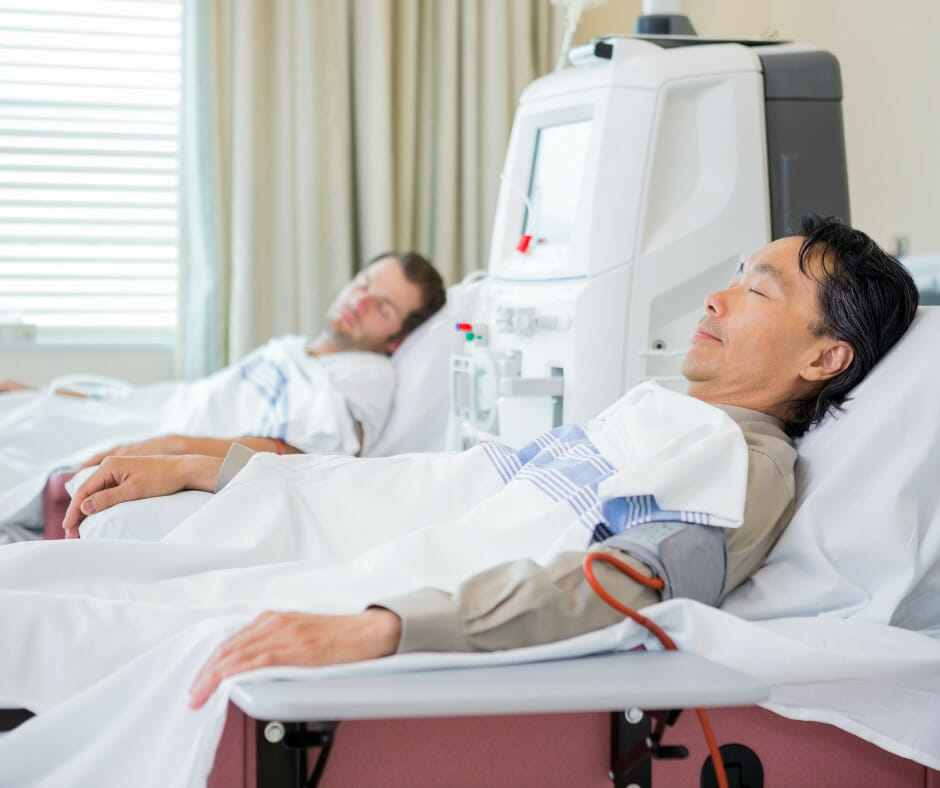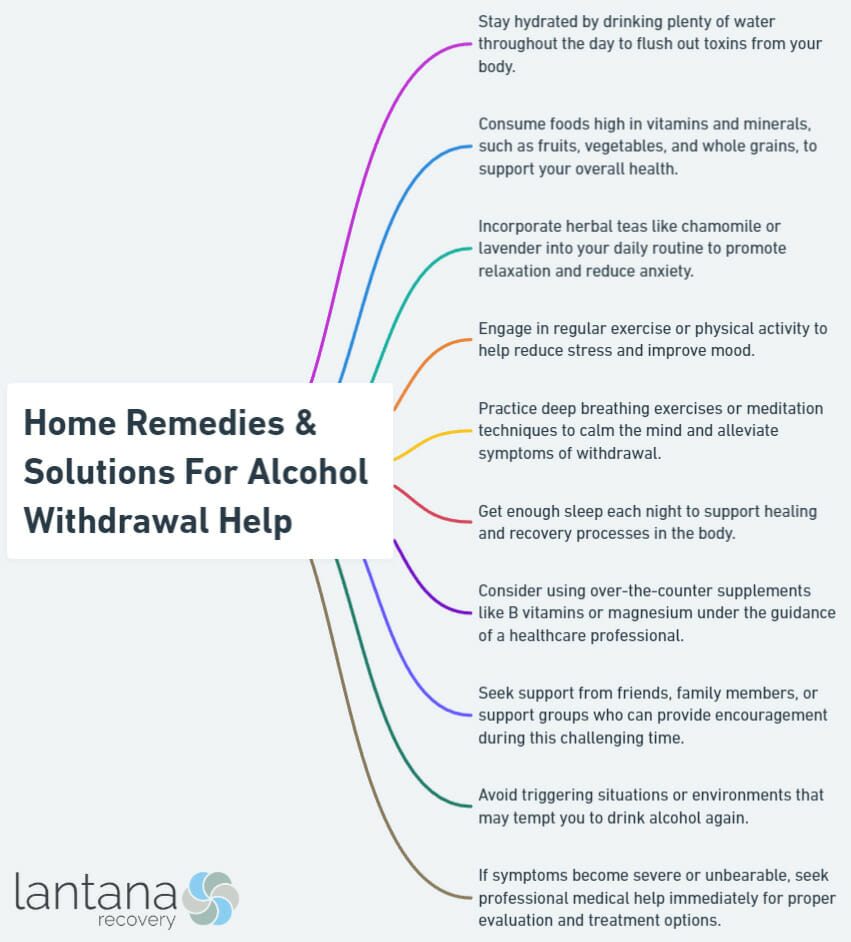For many, overcoming alcohol addiction is a challenging journey. Understanding alcohol withdrawal and its effects on the mind and body is essential in navigating this process successfully. In this comprehensive guide, we will delve into the causes and symptoms of alcohol withdrawal, explore natural remedies and coping strategies, discuss the importance of professional alcohol withdrawal help, and provide tips for preventing relapse and maintaining long-term recovery. By the end of this article, you will have a deeper understanding of alcohol withdrawal and the tools to help you or a loved one triumph over addiction.
Key Takeaways
- Understanding and managing alcohol withdrawal requires professional help, medication, natural remedies, healthy lifestyle habits and ongoing support.
- Creating a solid foundation for lasting recovery includes identifying triggers and developing coping skills to prevent relapse.
- Professional assistance is necessary to safely manage alcohol withdrawal symptoms with medical detoxification programs or inpatient/outpatient treatment options.
Understanding Alcohol Withdrawal

Alcohol withdrawal is a set of symptoms that manifest when an individual who has been engaging in alcohol abuse, consuming alcohol heavily over an extended period of time, ceases to do so. This occurs due to prolonged alcohol consumption altering the sensitivity of receptors in the brain, leading to alcohol withdrawals. Recognize that the severity of alcohol withdrawal symptoms can depend on factors like the extent of alcohol use and the individual’s overall health.
The symptoms of alcohol withdrawal, which may include alcohol withdrawal delirium, are:
- Confusion
- Alterations in blood pressure
- Profuse sweating
- Fever
- Auditory and visual hallucinations
- Seizures
Severe symptoms are typically observed within 8 hours of the last ingestion, although they can appear days later. Symptoms generally reach their highest intensity within 24 to 72 hours, yet may persist for several weeks.
A variety of medications and treatments, including benzodiazepines, adjunctive agents, and symptom-triggered pharmacotherapy, can be used to manage and treat these symptoms.
Causes of Alcohol Withdrawal
The severity of alcohol withdrawal symptoms, such as alcohol withdrawal seizures, is largely determined by the extent of alcohol use but may also be affected by a range of other factors. The brain’s compensatory response to chronic exposure to alcohol is a decrease in the GABA-A neuroreceptor response to GABA, which can lead to alcohol cravings and withdrawal symptoms.
“We hypothesized that sustained activation of neuroendocrine stress systems (e.g., corticosteroid release via the hypothalamic-pituitary-adrenal axis) by alcohol intoxication and withdrawal and consequent alterations in glucocorticoid receptor (GR) and mineralocorticoid receptor (MR) activation drive compulsive alcohol drinking,” suggests a study published in The Journal of Neuroscience. (Corticosteroid-Dependent Plasticity Mediates Compulsive Alcohol Drinking in Rats, Vendruscolo et al., 2012)
In addition, glutamate, a significant excitatory neurotransmitter in the brain, acts via the NMDA neuroreceptor and contributes to alcohol withdrawal syndrome. Medications such as baclofen, gabapentin, and vigabatrin have been found to be effective in treating alcohol withdrawal, including more severe withdrawal symptoms. These medications work by targeting specific neurotransmitters and receptors in the brain, helping to reduce the kindling effect and making them a preferred option for treating alcohol withdrawal.
Before starting any medication regimen, consulting a healthcare professional is necessary to ensure appropriate treatment for an individual’s specific needs.
Alcohol Withdrawal Symptoms
Alcohol withdrawal symptoms can vary greatly depending on the amount and duration of alcohol consumption. Common symptoms include minor withdrawal symptoms such as:
- Nausea
- Headache
- Anxiety
- Vomiting
- Insomnia
Dealing with the symptoms mentioned above and other symtopms like alcohol withdrawal induced itching can be difficult. The Clinical Institute Withdrawal Assessment (CIWA-Ar) scale can be used to determine the severity of withdrawal symptoms and guide treatment decisions. Scores of 8 points or less suggest mild withdrawal, scores of 9 to 15 points indicate moderate withdrawal, and scores above 15 points signify severe withdrawal with an elevated risk of delirium tremens and seizures.
While using the CIWA-Ar scale, monitoring the individual’s clinical presentation is important, as certain medical and psychiatric conditions may present symptoms similar to those of alcohol withdrawal. Additionally, certain medications, such as beta blockers, may reduce the visibility of these symptoms.
In cases of severe withdrawal, medical attention is necessary to safely manage symptoms and prevent complications such as seizures, high fevers, or delirium.
Natural Remedies for Alcohol Withdrawal

In addition to professional help and medications, there are a variety of natural remedies that can help alleviate alcohol withdrawal symptoms and make the detoxification process more manageable. These remedies focus on supporting the body’s natural healing processes and providing relief from uncomfortable symptoms. Incorporating natural remedies into your recovery plan can be a valuable tool in managing the physical and emotional challenges of alcohol withdrawal.
Relaxation techniques such as:
- Meditation
- Deep breathing
- Hot showers or baths
- Stretching
Can be beneficial in managing the physical effects of alcohol withdrawal. Consuming fluids, taking a cold shower, ingesting fruits and vegetables, and practicing deep breathing techniques and meditation can also help alleviate withdrawal symptoms.
Keep in mind, consulting a healthcare professional before starting any new treatment regimen, including natural remedies, is important.
Hydration and Electrolytes
Maintaining hydration during alcohol withdrawal is crucial in alleviating dehydration and nausea associated with the detoxification process. Drinking water and electrolyte-rich fluids such as coconut water, sports drinks, and electrolyte tablets can help ensure your body is adequately hydrated and functioning optimally. Consuming electrolytes can aid in restoring the body’s hydration levels, thereby potentially alleviating alcohol withdrawal symptoms.
It’s important to monitor your fluid intake and adjust as needed based on your body’s needs. Staying well-hydrated throughout the withdrawal process can help reduce discomfort and support overall health and well-being.
Don’t forget to consult a healthcare professional regarding your particular hydration needs during alcohol withdrawal.
Nutrition and Diet
A balanced, nutrient-dense diet is vital for providing the body with the necessary vitamins and minerals needed to manage withdrawal symptoms and promote overall health. Consuming a diet rich in fruits and vegetables, whole grains, lean proteins, and healthy fats can help support your body during alcohol withdrawal. Additionally, certain vitamins and supplements, such as B vitamins, vitamin C, calcium, and omega-3 fatty acids, may be advantageous in mitigating some of the symptoms associated with alcohol withdrawal, recommends a systematic review published in Alcoholism, Clinical and Experimental Research titled The role of essential fatty acids in alcohol dependence and tissue damage.
The consumption of healthy fruits and vegetables can help regulate the sugar levels in the body, which can be advantageous for controlling withdrawal symptoms. Maintaining a healthy diet throughout the withdrawal process not only aids in managing symptoms, but also supports long-term recovery and overall well-being.
Herbal Supplements
Herbal supplements are natural remedies derived from plants that are utilized to address various health concerns. Some herbal supplements, such as St. John’swort, Kudzu, and Milk Thistle, have been known to help reduce anxiety, stress, and insomnia associated with alcohol withdrawal. Despite these supplements potentially offering relief from withdrawal symptoms, consulting with a healthcare professional before using herbal supplements is crucial to ensure their appropriateness for your specific needs and to prevent interactions with other medications.
Incorporating herbal supplements into your recovery plan, along with other natural remedies and coping strategies, can provide additional support and relief during the challenging process of alcohol withdrawal. Always consult with a healthcare professional before starting any herbal supplement regimen to ensure the appropriate treatment for your individual circumstances.
Coping Strategies for Alcohol Withdrawal

Practical coping strategies can help individuals manage withdrawal symptoms and maintain mental and emotional well-being throughout the detoxification process. These strategies can support the recovery process by providing relief from discomfort, reducing cravings, and promoting overall well-being. Incorporating these coping strategies into your recovery plan can enhance your ability to handle the challenges of alcohol withdrawal and maintain your commitment to your journey towards sobriety.
Some viable coping strategies for alcohol withdrawal include:
- Deep breathing and focusing on being in the moment
- Going for a stroll
- Taking a cold shower
- Having a first aid kit at hand
- Writing a letter to oneself
- Utilizing intentional breathing techniques
- The “fast forward” technique, a mental exercise that involves considering the potential consequences of having a drink instead of focusing on the momentary relief it may bring
These strategies can be helpful in managing cravings during withdrawal.
Mindfulness and Meditation
Mindfulness practices and meditation can help calm the mind and body during alcohol withdrawal, making it easier to cope with the physical and emotional challenges of detoxification. Techniques such as deep breathing, progressive muscle relaxation, and guided imagery can be particularly useful in alleviating stress and anxiety related to alcohol withdrawal.
Adding mindfulness and meditation techniques to your daily routine can offer continued support and relief during alcohol withdrawal. Regular practice of these techniques can help you maintain balance, relaxation, and mental clarity throughout the recovery process, promoting long-term well-being and resilience against relapse.
Exercise and Physical Activity
Regular exercise and physical activity can be helpful in reducing the stress and anxiety related to alcohol withdrawal, as well as promoting overall well-being. Engaging in physical activities such as:
- walking
- running
- swimming
- yoga
Can provide a natural outlet for stress and help alleviate withdrawal symptoms.
Including exercise and physical activity in your daily routine during alcohol withdrawal can yield numerous benefits, such as improved mood, reduced cravings, and increased energy levels. By prioritizing physical activity and maintaining a consistent exercise routine, you can support your ongoing recovery and overall health.
Social Support and Accountability
A strong support network is essential for individuals coping with alcohol withdrawal and staying committed to their recovery journey. Connecting with family and friends, participating in a support group, and consulting with a therapist or counselor can provide accountability and support during alcohol withdrawal.
The benefits of social support for alcohol withdrawal include:
- Improved treatment adherence
- Decreased likelihood of post-treatment relapse
- Promotion of healthy behaviors
- Responsibility for sustaining sobriety
- Constructive engagement with treatment
Cultivating a strong support network can enhance your ability to handle the challenges of alcohol withdrawal and sustain your commitment to long-term recovery, suggests a literature exploring the benefits of peer support for addiction recovery.
Professional Help for Alcohol Withdrawal

In cases of severe withdrawal symptoms, seeking professional help is paramount to ensure a safe and controlled environment for managing the detoxification process. Various treatment options are available to help individuals navigate alcohol withdrawal, including medical detox, inpatient and outpatient treatment programs, and individual and group therapy.
Although natural remedies and coping strategies offer valuable support during alcohol withdrawal, professional help is indispensable for handling severe symptoms and avoiding complications. By exploring available alcohol withdrawal treatment options and seeking the guidance of healthcare professionals, you can ensure a safe and successful recovery journey.
Medical Detox
Medical alcohol detox is a process that involves:
- Monitoring and treatment provided by healthcare professionals
- A secure and regulated environment
- Close monitoring of the withdrawal process
- Administration of medications as needed to prevent severe withdrawal symptoms and alleviate discomfort.
Benzodiazepines are commonly prescribed for managing alcohol withdrawal symptoms and preventing severe complications such as delirium symptoms (DTs). Consulting a healthcare professional before starting any medication regimen is essential for ensuring appropriate treatment for an individual’s specific needs and managing the withdrawal process safely.
Inpatient and Outpatient Treatment Programs
Inpatient and outpatient treatment programs offer different levels of support and structure for individuals undergoing alcohol withdrawal. Inpatient treatment programs involve a stay in a hospital or treatment center, providing a more intensive and structured approach to treatment. In contrast, outpatient treatment programs offer greater flexibility and cost-efficiency, allowing individuals to pursue their daily activities while receiving treatment.
Both inpatient and outpatient treatment programs can be effective in aiding individuals in managing their alcohol withdrawal symptoms and supporting their ongoing recovery. Consulting a healthcare professional to determine the most suitable treatment program for your specific needs and circumstances is essential.
Preventing Relapse and Maintaining Recovery

Preventing relapse and maintaining long-term recovery from alcohol addiction requires a multifaceted approach that includes:
- Building a healthy lifestyle
- Identifying triggers
- Developing coping skills
- Engaging in ongoing support and therapy
By implementing these strategies, you can create a solid foundation for lasting recovery and prevent relapse.
Taking the necessary steps to prevent relapse and maintain your recovery journey is pivotal for overall well-being and long-term success. With the right support, tools, and resources, you can overcome the challenges and symptoms of alcohol withdrawal and build a healthier, happier life free from addiction.
Building a Healthy Lifestyle
Creating a healthy lifestyle that supports ongoing recovery and overall well-being is a vital component of preventing relapse and maintaining long-term sobriety. This includes:
- Engaging in regular exercise
- Maintaining a balanced diet rich in fruits and vegetables, whole grains, lean proteins, and healthy fats
- Practicing self-care strategies such as mindfulness and meditation
Prioritizing your physical, mental, and emotional health can lay a strong foundation for lasting recovery and overall well-being. A healthy lifestyle not only supports your recovery journey, but also enhances your overall quality of life, making it easier to navigate the challenges of alcohol withdrawal and maintain long-term sobriety.
Identifying Triggers and Developing Coping Skills
Recognizing personal triggers for alcohol use and developing effective coping skills to manage them is crucial in preventing relapse and maintaining recovery. Common triggers of addiction relapse include stress, boredom, and negative emotions. Identifying these triggers and cultivating healthy coping strategies can enhance your ability to handle the challenges of alcohol withdrawal and maintain your commitment to recovery.
Implementing a plan to avoid relapse, recognizing potential triggers, and developing coping strategies can provide the necessary support to prevent relapse and maintain long-term recovery. As you continue on your recovery journey, refining your coping skills and staying vigilant about potential triggers will help ensure lasting success and freedom from addiction.
Ongoing Support and Therapy

Ongoing support and therapy play a critical role in sustaining recovery and hindering relapse. This can include:
- Individual counseling
- Group therapy
- 12-step programs
- Other forms of support
Engaging in ongoing support and therapy can aid in the continuous development of the tools and resources needed to remain abstinent and control cravings. It is important to remember that the timeline for alcohol withdrawal varies withe ach individual and depends on a variety of personal reasons.
Connecting with others who share similar experiences, receiving guidance from professionals, and building a robust support system can significantly contribute to your long-term recovery success. By prioritizing ongoing support and therapy, you can maintain your commitment to sobriety and continue to build a healthier, happier life free from addiction.

Summary
Navigating alcohol withdrawal is a challenging yet essential step in overcoming addiction and building a healthier, happier life. By understanding the causes and symptoms of alcohol withdrawal, exploring natural remedies and coping strategies, seeking professional help when needed, and implementing strategies to prevent relapse, you can successfully manage the challenges of alcohol withdrawal and maintain long-term recovery. Your journey toward sobriety may be difficult, but with the right support, tools, and resources, you can triumph over addiction and create a fulfilling life free from alcohol.
Frequently Asked Questions
What is the best thing to take to stop drinking?
The best thing to take to stop drinking is naltrexone, which reduces cravings and helps people achieve long-term sobriety. It comes in pill or injection forms and should be used after abstaining from drinking for at least 4 days.
Naltrexone works by blocking the effects of alcohol and opioids in the brain, reducing cravings and helping people stay sober. It is available in both pill and injection forms and should be used after abstaining from drinking for at least three days.
What are three things that can help with withdrawal symptoms?
Stay hydrated, get plenty of rest, and engage in calming activities such as meditation or yoga to help with withdrawal symptoms.
How do you get alcohol out of your body?
To get alcohol out of your body, the liver processes it and small amounts are eliminated through sweat, breath, and urine.
A standard drink is defined as 12 fl. oz. of regular beer.
What happens when you finally stop drinking?
When you stop drinking, you can expect immediate physical and psychological relief from withdrawals, improved sleep and energy levels, and healthier blood pressure.
Long-term benefits also include a repairing liver.
What is the difference between inpatient and outpatient treatment programs for alcohol withdrawal?
Inpatient treatment programs involve a stay in a hospital or treatment center and are more intensive, while outpatient treatment programs offer greater flexibility and allow individuals to pursue their daily activities while receiving treatment.
Outpatient treatment programs provide individuals with the opportunity to receive treatment while still living at home and engaging in their daily activities. This allows individuals to maintain their daily routines while still receiving the necessary treatment. Additionally, outpatient treatment programs are often more affordable than inpatient programs.









